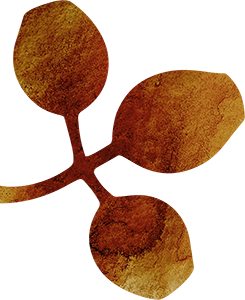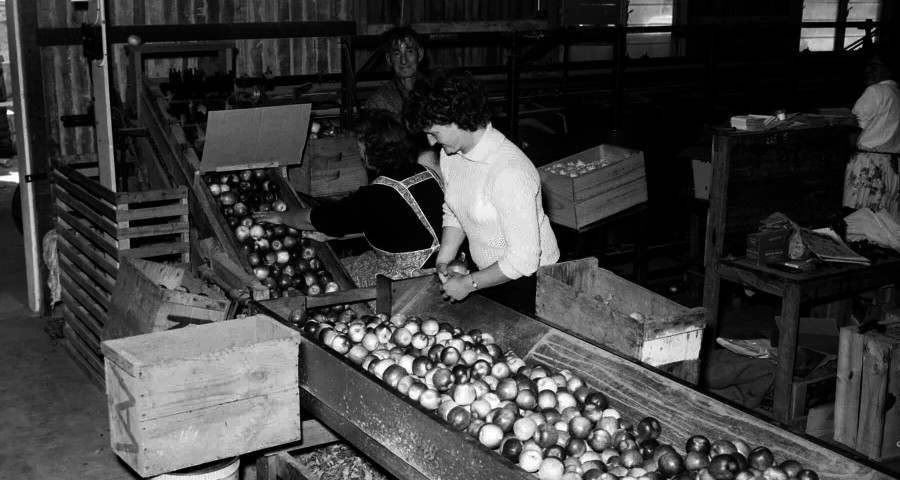In 2018 I read that a plastic shopping bag had been sighted by an underwater research vessel in the Mariana Trench. I cried. I was particularly grieved to realise that we, as God’s people, have been complicit in the erosion of the health of our earthly home. Caring for the earth, learning to live within its God-given rhythms, and making it even more productive was our original job description. Facing the alarming reality that we have corporately trashed our planet to its deepest recesses, I found myself teetering towards despair. I needed to find a way forward.
I considered the environmental impact of my own lifestyle and (default) choices and focused on simpler, more sustainable practices. I took heed of Philippians 4 and sought out what was good, noble, and praiseworthy. I caught an episode of Landline on regenerative ‘carbon’ farming and felt a glimmer of hope. I tuned into Gardening Australia, which now includes welcome doses of wisdom from permaculture systems thinking. I was nourished by stories of everyday people caring for their human and non-human communities, inspiring and empowering a new generation to connect, go outside, get dirt under their nails, and share the awe and excitement of being part of the living world.
It also felt familiar.
I found comfort in recognising the grounding impact of being raised ‘on the land’ in north-west Tasmania in the 60s.

I grew up with the children, grandchildren, and great-grandchildren of orchardists, farmers, and tradespeople in a small rural district. Our lives overlapped through work, play, church, school, special occasions, and daily interactions. Tasmania had ‘boomed’ on apples and hydro-powered industry. Dad’s father brought his family out from Northern Ireland in 1951 to work on dam construction. Mum’s family, descended from convicts and settlers, were orchardists. They also ran a transport business taking apples to port. I remember the orchard, the bush, my grandparents, cousins, uncles, and aunts living within half a kilometre and seeing recognisable faces wherever I went. Even on a trip to ‘town’ (Devonport) we would always bump into someone we knew. We went there to buy new shoes or to see ‘the pictures’. Soft serve Dairy Queen ice-cream in a cone from the milk bar near the post office was a much-loved treat (and I’m sure it was better than Macca’s!).
As a child, I experienced the particular security of being known not so much for who I was but for whose I was. Family reputation mattered. People knew my family’s story and I had my place within the broader history of that place. What I wasn’t told was that ‘our’ history had swept away the heritage of my peers. Arrogance and ignorance had silenced the violent stories of European settlement. Having been taught ‘Tasmanian Aboriginals are extinct’ I could not see what could not be. The realisation that many of my ‘olive-skinned’ schoolmates were (obviously!) descendants of First Nations people came shamefully late. They were included as part of ‘us’ but we had pushed them from their place and denied them their rightful identity. Thankfully, if belatedly, change has come: Hannah on Gardening Australia now respectfully reports from ‘nipaluna/Hobart’.
The adults of my childhood world were ‘practical’ people. They were skilled. They could maintain and repair trucks, tractors, fences, ditches, taps, roofs, clothing, and toys. My mother sewed, knitted, and mended and passed these skills on to me. She could spin a fleece, smock and embroider a baby’s dress, and make food ‘go further’. My Dad was a mechanic and a decent ‘bush’ carpenter. Someone on our road would have the gear and the know-how to make, build, restore, or repurpose whatever was required for everyday life and work. It seemed that, together, the inhabitants of Spreyton could tackle almost anything, with a minimum of fuss. I suppose they had to. But I had the sense that people enjoyed working side-by-side. Dad says ‘smoko’, with a thermos of tea and a sandwich from home, was the best part of the working day. As well as providing rest, it was a chance to catch up, review progress on the job at hand, and share a laugh. I recall the hum of conversation between pickers in the orchard, and snatches of songs. (I know some seriously old ‘popular’ tunes.) Whistling was still a widely-practised art and I became quite proficient, although my mother (my tutor) suggested I ‘keep it for the paddock’, as it was considered ‘unladylike’!

The adults of my childhood world were ‘practical’ people. They were skilled. They could maintain and repair trucks, tractors, fences, ditches, taps, roofs, clothing, and toys.
Resilience or convenience?
Our relatively self-sufficient community could have been described as ‘resilient’, but it was not a term I heard used. It was just the way they were. The times had required it. Perhaps it grew from their values and expectations of life and, as the podcast term ‘Reskillience’ suggests, our ‘emotional’ resilience may depend on knowing we have the necessary skills to meet life’s challenges. Resilience is embodied and is strengthened through cooperation.
We all seemed to have ‘enough’, and people saved for special purchases. They took pride in ‘providing for their own’ although help was available when needed. Neighbourly habits of non-monetary reciprocity were commonplace and contributed to community resilience, trust, and equity. When our generous Friesian cow was in peak production, her twice-daily yield was more than we could manage. Mum would ask a neighbour (who had four growing children) to share the milking. This arrangement worked seamlessly, requiring only my mother’s awareness and her neighbour’s reliability and skills. Common-sense cooperation matched abundance with capacity while building social capital. There is a striking quote in a must-hear podcast by Robin Wall Kimmerer (The Service Berry) attributed to an Indigenous Amazonian who shares a ‘kill’ with his community. Asked (by a Westerner) why he doesn’t dry the meat to keep for his family, he replies, ‘I store meat in the belly of my brother’. Real flourishing is mutual and relational.

Real flourishing is mutual and relational.
My parents were ‘late adopters’ of unfamiliar technology, so I had the privilege of lingering a little longer with the ‘tried-and-true’ practices and values of an earlier generation who abhorred waste and creatively managed both abundance and lack. No wonder permaculture feels like coming home! More widespread caution concerning the impacts of ‘progress’ may have avoided some of the worst fall-out of ‘Man vs Nature’. Unregulated, extractive industries stained and scarred pristine landscapes and residual DDT from pre-60s orchard spray lingered. I suppose there may have been worse things than flooding native forests to create ‘clean’ electricity, but human ‘dominion’ tends to be thoughtless and heavy-handed. However, my generation did benefit from much of the ‘new’. Immunised and well-fed (but not overweight) and with growing disposable incomes, we became willing recruits for marketers aiming to train insatiable, wasteful, aspirational consumers who would embrace everything disposable. Everyone loved Tupperware, which was designed to last a lifetime (and beyond!) but single-use plastics saved time at the church kitchen sink.
I was told, ‘You can’t expect everything in life to be served up on a plate!’, but the messaging has been reversed. Despite our generation having easy access to quality produce and time-saving appliances, we’re persuaded we have ‘better things to do’ than prepare meals. We phone-order home delivery of pre-cooked, personalised, highly processed, plastic-packaged food and the indestructible remains now swirl in the deep.
Of course there is a price. Esau traded his inheritance for a quick meal. We seem to be squandering our basic human competency and agency for momentary convenience. After generations of prizing our independence, we’re voluntarily de-skilling.

Re-creating communities of enough
Many are pushing back against the mantras of advertising which have brought us to this moment of global crises. If we need ‘more time for what’s important’, we need to be clear about what is important. It delights me to see my tech-savvy adult children and young folk at our church mining the best of the online world for tips on making and mending. They buy second-hand and tap into their local community via Facebook, trading goods and skills. They interlink their human networks, building layers of connection. With no clear solution to what is global, they are starting with local.
Purposeful action has always been a salve for angst in the face of the seemingly insoluble. I manage mine in my home and garden, trying to model responsible earth citizenship to my grandchildren. I repair their clothes, bake sourdough, and direct little eyes to the wonder of God’s ‘very good’ creation which sustains us all. I am drawing on the abundant harvest of experiences from my childhood in the hope of enriching theirs and better equipping them for an uncertain future. I’m not on Facebook, but when my neighbour two doors up brought me honey (because his bees visit my salvias) I gave him a stack of pots I’d grabbed from a nearby skip, so he could divide his turmeric. It’s been so good to finally interact a little more after a couple of decades of waving at one another from the car. In town, people come and go, life is lived in transit and it can seem as if reaching out isn’t worth the energy. Sometimes we wonder if it’s better to keep our distance. People are entitled to their space and relationships always require care. But humans are made to connect. Despite our individualism, I suspect we all know that what’s important is experienced together. If we can re-calibrate our idea of ‘enough’, put aside competition for the greater goal of mutual flourishing, and say ‘Hi’ to those around us, we will surely find ways to share, build goodwill, and create something like community.
Wendy and Des live on a quarter acre in Brisbane’s leafy inner south, next to Des’ Mum and ten minutes from their children and grandchildren, shops, and church. Wendy regularly visits her Dad on his property in Tasmania where he’s still fixing things with re-purposed bits of ‘four b’ two’.

